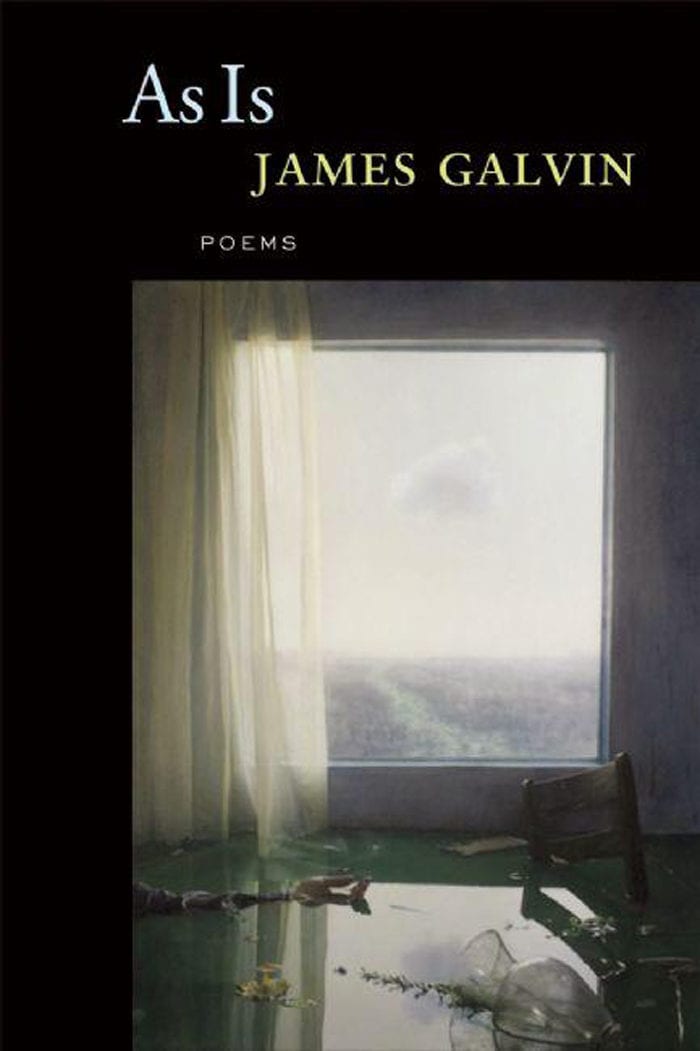
James Galvin’s tightly controlled and detailed poems evoke measured optimism and wonder in a spare existential world where certain characters—”The Mastermind” and the “Members of the Board”—are perennial shadows that haunt our times. Here is a windblown landscape where the slow death of a deer caught in barbed wire contrasts with the lifesaving tenderness of a palm extended to a kiss, a naked hip exposed to a caress. Like fables suggesting new truths, the personal narratives and love poems of As Is intertwine to confront the paradoxes of art, politics, and domestic life. “All poems are love poems” leans hard against “[s]ome poems are better off dead”: each assertion rightfully claims its hard-won place. Salvation can turn immediately to devastation: “After the drought / The river took / Back everything.” Yet there remains an unrelenting capacity for beauty.
ISBN: 9781556592966
Format: Paperback
Reviews
“… in Galvin’s world, which now mirrors and comments on post-9/11 America, the bad is as good as the good, because, ‘Everything / That threatens us / Threatens to save us.'” —Publishers Weekly
“Galvin’s poems seem straightforward enough—but they’re not… Galvin writes here like a force of nature… Excellent reading for contemporary poetry enthusiasts not looking for the overblown.” —Library Journal
“James Galvin brings fans of his previous work a treat with As Is.” —Midwest Book Review
“Galvin appears to have little fear in invoking a knowing shudder in his reader; with no apology, he the validity of atrocity and notions of victory.” —Iota
